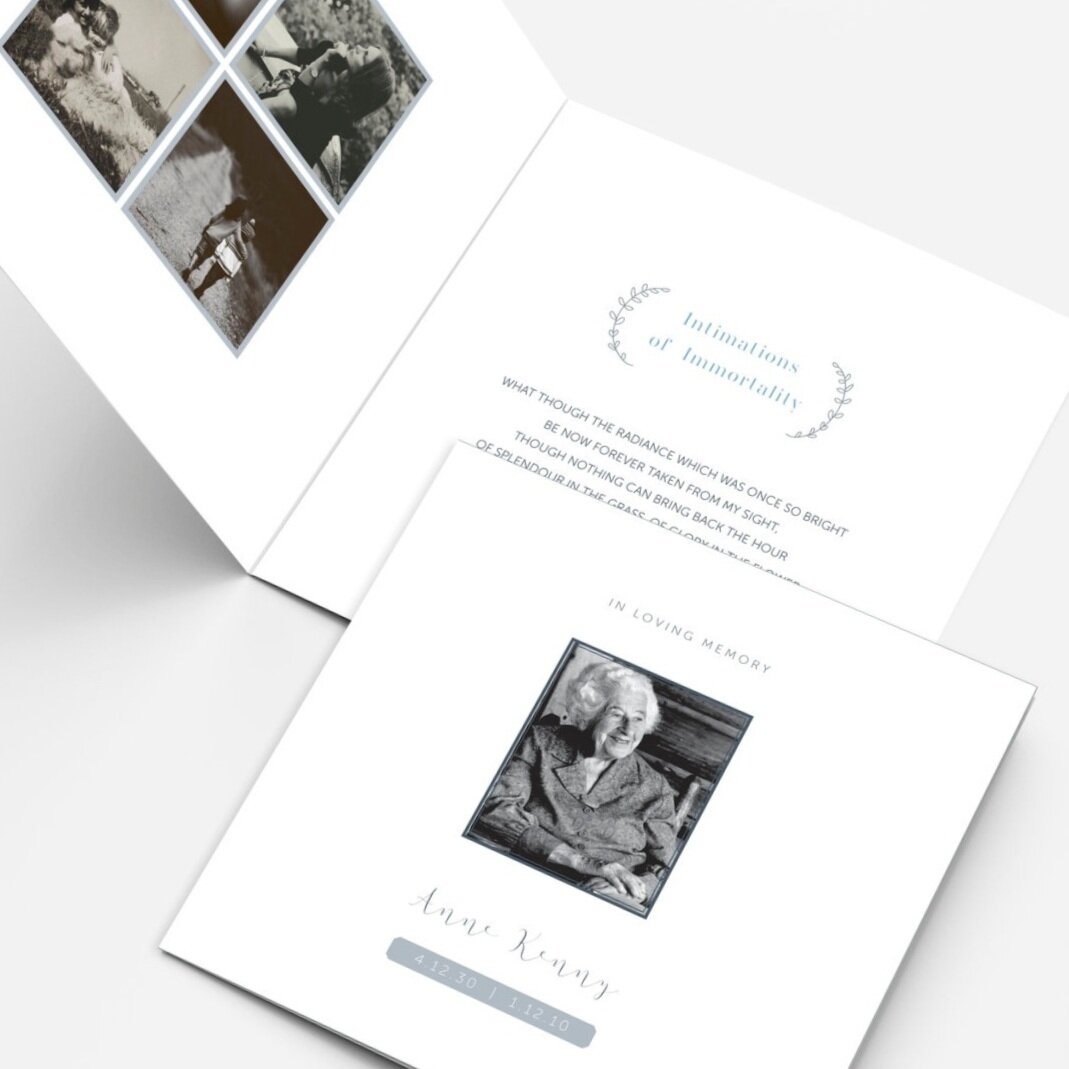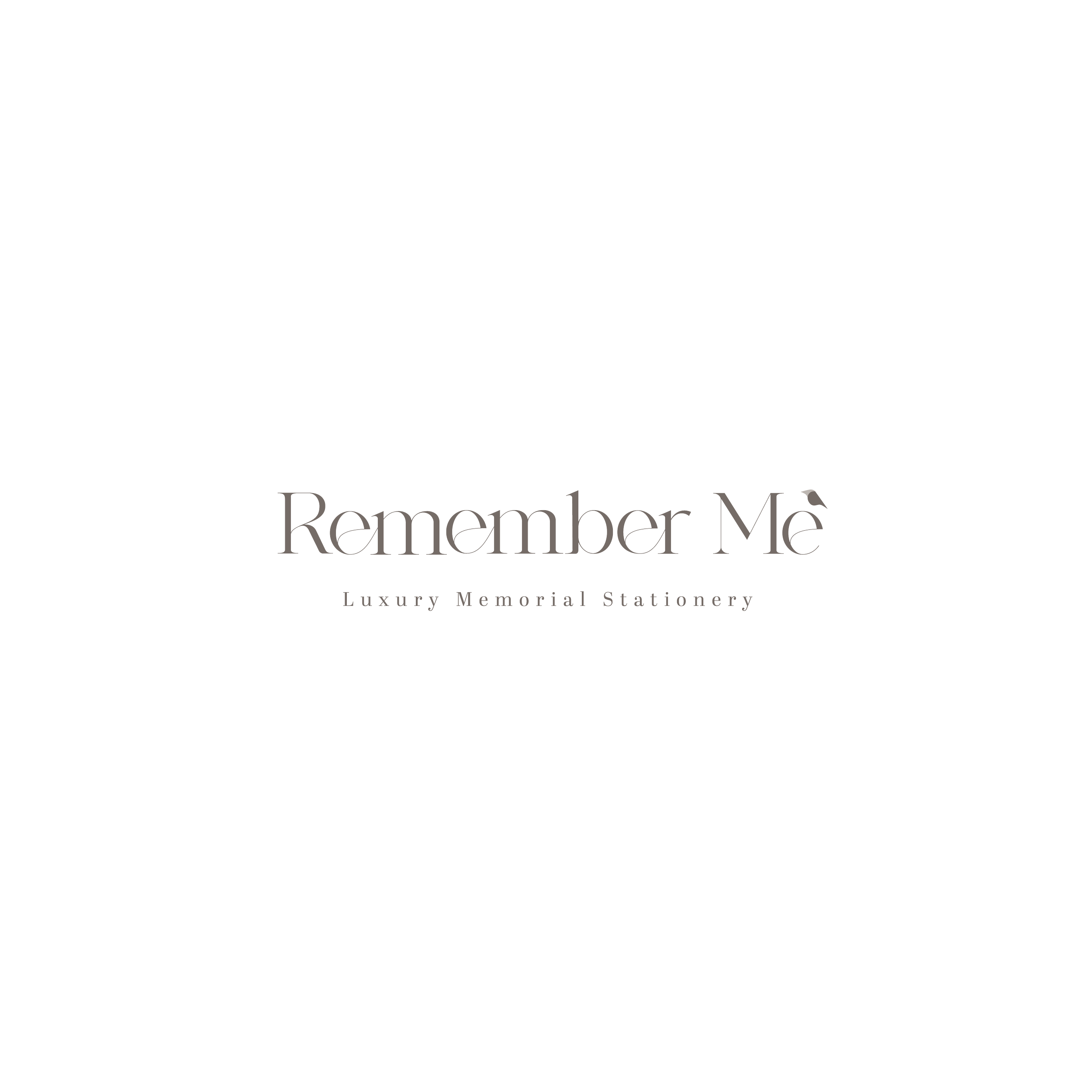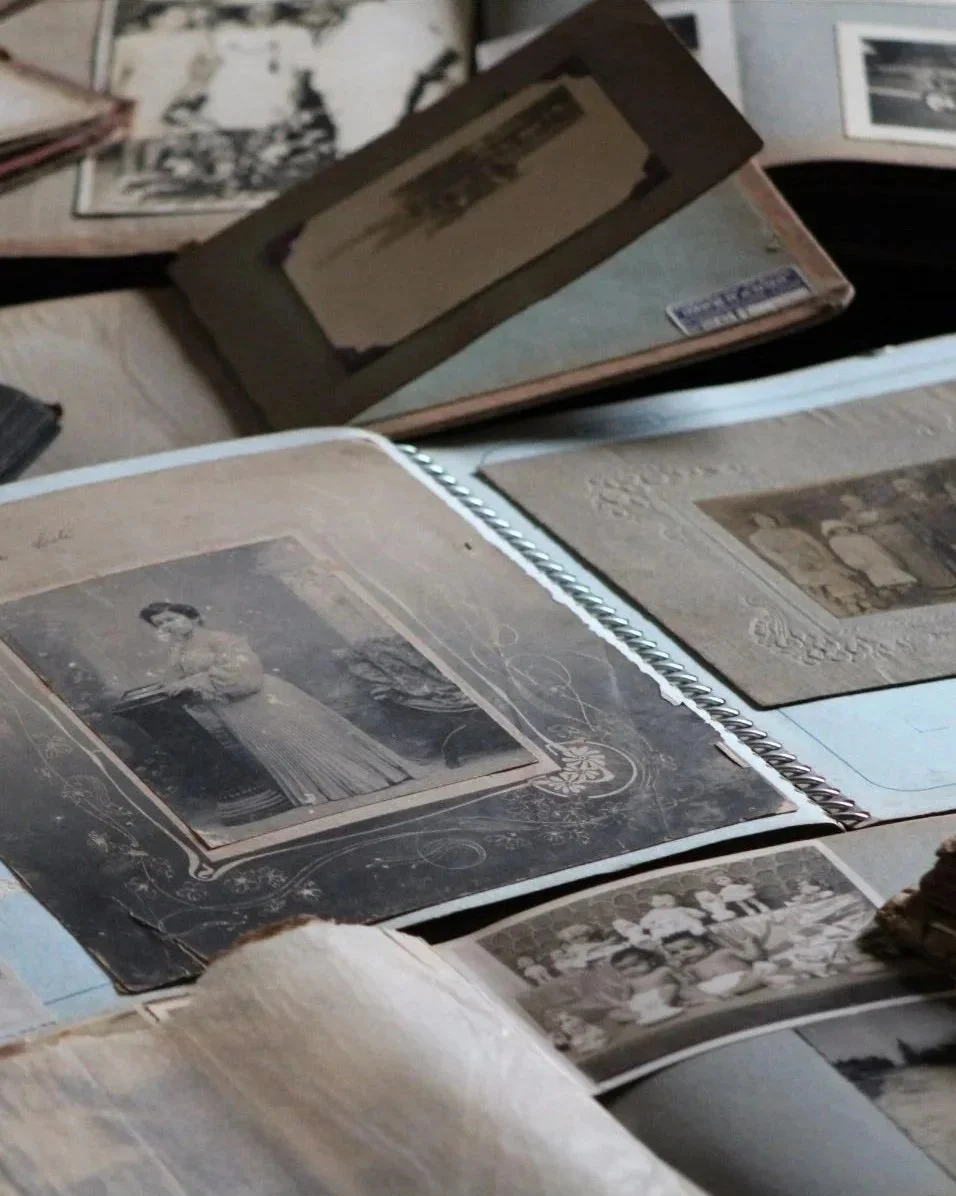Practical Guidelines for
Sending Memorial Cards
What is a Memorial Card?
A Memorial Card otherwise known as a Remembrance Card, Mortuary Card or Funeral Card is a personalised card with a photograph or selection of photographs, the deceased’s name and a poem or prayer. They are usually created by the family and given to relatives, friends, neighbours and colleagues sometime after a funeral. Traditionally Memorial Cards in Ireland were always Religious however that has changed over the years. Many people who are grieving want to find a way to create a meaningful tribute of a person that was once so close. I think when the time is right the process of creating a Memorial Card can offer comfort after a loss and is truly a special way of honouring their life. It can also give family and friends the opportunity and a space to re-connect with the other mourners and share some memories.
When to send Memorial Card?
Some may say within a year, before the first anniversary but don’t feel pressured to finish the cards by a certain deadline, people will understand so take your time discuss with your family what you’d like to do. It can be a difficult task which may take time to make decisions and complete. We can offer help and hope to make the process as simple and straight forward as possible.
Who to send Memorial Cards to?
Generally Memorial Cards are sent to immediate family, relatives, friends and neighbours of the deceased.
Addressing the Cards for Post
Collecting all the addresses to post the cards can be a difficult, ideally the quickest and simplest way is to create a file in a Word Processing Application and print onto address labels otherwise addressing envelopes by hand will do.
Choosing Photographs for the Memorial Card
For the main picture try source a recent picture if at all possible. A well light photograph in focus, clearly looking at camera is preferable. Minor blemishes and background objects can be removed. For a collage of photographs include a few both old and recent that you think may suit so we have a selection to work with to provide you with your first proof.
Check out my blog post for more information on
Choosing Photographs for a Memorial Card
Please don’t hesitate to get in touch if you have any queries
hello@rememberme.rip
Guidelines for Sending
Memorial Cards
and Acknowledgement Cards
After the loss of a loved one, people may receive floral arrangements, mass cards, and sympathy cards. Many mourners may have travelled long distances to show their support at the time of a loved ones funeral. Some may wonder if all of these people should to be acknowledged with a Thank You Card / Acknowledgement Card. While it is always recommended that a floral arrangement or mass card is acknowledged with a card it is not considered necessary to reply to every Sympathy Card received. Sometimes, the sheer volume of cards received makes this a very difficult task.
However in recognising all the people who were so thoughtful, loving, kind, and supportive, it can help the bereaved to realise they are not alone. Writing out these greeting cards may bring about thoughts and memories of the loved one they lost, helping them to grieve. It can also be very comforting to read messages and stories from friends and acquaintances and really help with the grieving process.
Who to Send a Thank You Card / Acknowledgement Card
Thank You Card / Acknowledgment Card is the family’s thank you to all those who helped and supported them in any way, before, during and after the funeral. They can be sent to a wider circle of friends and acquaintances or anyone who helped and provided support in any way for example; neighbours; members of your community; any medical professionals, nurses and carers; a particular ward in a hospital; any associations or charity you would like to acknowledge; the celebrant, musicians and those who participated
in the Mass / service / celebration of life; the funeral directors.
If you are in the process of composing Thank You Cards / Acknowledgement Cards, you may want to include a personal thought or two about your deceased loved one that is appropriate for the recipient or you may want to keep your note very simple by saying “Thank you for your expression of kindness.” The type of message you include depends on your relationship with the recipient. If the card is being sent to a co-worker or client the message might be brief; with family and close friends something with more meaning would be appropriate.
What to say in a Thank You Card / Acknowledgement Card
We would like to thank you for sharing your memories, support and love. Your sympathy and kindness are deeply appreciated and will always be remembered.
. . .
Thank you for your support and kindness.
For being there in our time of sadness.
We are forever grateful for your kind
expression of sympathy.
. . .
Thank you for the acts of kindness you have shown us.
We greatly appreciate it and you will always be in our thoughts.
. . .
Your kind and thoughtful expression of sympathy
is deeply appreciated and gratefully acknowledged by…
. . .
We wish to express our sincere gratitude for your friendship, kindness and prayers during this time of great sorrow. Never are we more aware of how much friends and family mean at the time of a bereavement. Your thoughtfulness did so much to ease our sorrow.
. . .
We are so grateful for your kind words and sympathy. It Is through the support of family and friends that has helped us though this difficult time. Thank you for your support and compassion.
GUIDELINES FOR SENDING SYMPATHY
AND CONDOLENCE CARDS
Sympathy Cards are ideally sent within a few weeks after a death, but really it’s never too late to send someone a sympathy card or note to express your heartfelt condolences for their loss. There can be many reasons for sending condolence cards late. Whether you heard about the person’s passing a few months or even a year after their death, or you put off sending a sympathy card because you just didn’t know what to say; you can be sure that your card or letter of sympathy will be appreciated no matter when it is received. Your card may very well be cherished all the more because it may come at a time when they are in need of the comfort. Your recipient will appreciate and welcome your card knowing that others are also thinking of their loved one and are empathetic to their loss.
So don’t be afraid to send condolence cards if some time has passed since a funeral or memorial service. When people are grieving a card is a reminder that they are not alone, that they are still cared for by others. A card expressing your sadness and acknowledging the loss of a loved one will always be remembered.
GUIDELINES ON PHRASES TO
AVOID IN A SYMPATHY CARD
When expressing a message of sympathy to someone who has just lost a loved one, everyone struggles to find the perfect words of comfort as many of us have a hard time dealing with death and funerals and worry that we are going to say something wrong.
There are certain overused phrases that should be avoided. While your intention is to offer sympathy and compassion, some phrases may come across as insensitive or cliched. If you are not sure what to say, “I am sorry for your loss” is still probably the best way to express your message of sympathy.
Keep it simple, don’t try to fix, just acknowledge,
offer support and try to avoid phrases such as:
. . .
Everything happens for a reason
At least you had him/her for as long as you did
I know exactly how you feel
They are in a better place
Time heals all wounds
He’s with God now
It’s for the best
. . .
There’s nothing you can say that will take away the pain of such a loss, but a simple and thoughtful sympathy message from the heart will leave a lasting impression and will provide the bereaved the support that is so needed during a bereavement.
SUGGESTIONS ON WHAT TO
SAY IN A SYMPATHY CARD
GENERAL SYMPATHY MESSAGES
I am deeply sorry for your loss.
. . .
I just heard of (Name) passing, and I am so sorry for your loss.
I am here for you if you'd like to talk
. . .
I'm thinking of you during this time of sorrow.
Don't hesitate to call if you need me.
. . .
My heart goes out to you and your family.
I'll never forget (Name) kindness and generosity.
He/She was always so good to me.
. . .
My thoughts are with you during this difficult time.
Please let me know if there is anything I can do.
We are here and happy to help in anyway.
. . .
I'm sorry you're going through this difficult time,
sending thoughts of peace and love to you
and your family.
. . .
Thinking of you and your family with sympathy
- and here for you for help and support
. . .
Celebrating an amazing life and wishing
you comfort in your memories of (Name).
. . .
Thinking of you with heartfelt sympathy
and wishing you feelings of comfort,
moments of peace, and memories
of joy during this difficult time.
. . .
May you find comfort in knowing you are
not alone in your sorrow and cared for
so much by many.
. . .
Letting you know I’m thinking of you
and I’m here for you.
. . .
You and your family are in our thoughts and
we offer our deepest sympathy for your loss.
. . .
I know your heart is aching and I’m thinking
of you with comfort and love.
. . .
Words can’t express the sorrow we feel.
Sending you peace and love at this
sad and difficult time.
. . .
Sending you our thoughts of strength
as you find your way through each day.
. . .
Sending you thoughts of comfort during this difficult time
- and remembering [Deceased Name] with love.
. . .
I feel so grateful to have known [Name] and will remember
him always, and often.
. . .
ADDITIONAL SYMPATHY MESSAGES TO INCLUDE ON A SYMPATHY CARD
A memory of the person who has passed
. . .
Anything positive that you remember
about the deceased
. . .
How the deceased has impacted
something in your life.
. . .
An offer of help or practical support or a shoulder
to cry on, or meeting up just to talk.
. . .
Where possible including a photograph
adds a unique and special personal touch.
. . .















